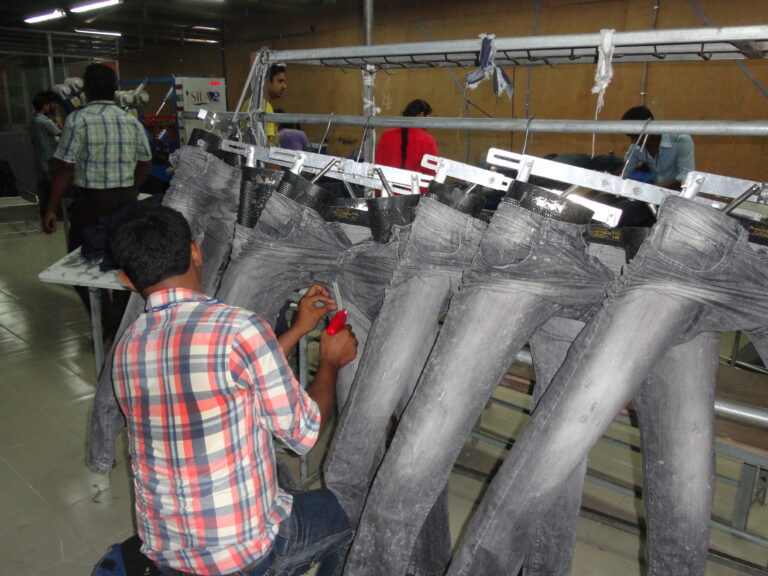Mauritius
Mile 91/C&A Foundation / Alamy Stock Photo
Overview
Mauritius is a hub for migrant labor; as of 2023, 35,820 foreign migrant workers—primarily from Bangladesh, India, Madagascar, Sri Lanka, and Nepal—were employed in the country’s garment, textile, manufacturing, and construction industries. The US State Department’s 2023 Trafficking in Persons Report recognizes that some migrant workers in the Mauritian manufacturing sector are subject to forced labor. In the report, the State Department downgraded Mauritius to its Tier Two Watch List, which designates those countries requiring special scrutiny for their poor performance
combatting trafficking.¹
Local media reports have indicated that migrant workers face abusive working and living conditions, no pay or less pay than promised, forced overtime, sexual violence, restrictions on freedom of movement, and deportation upon protesting labor conditions.² A 2019 UN Committee on Economic, Social and Cultural Rights report on Mauritius expressed concern that migrant workers experienced forced labor, underpayment of wages, poor living conditions, denial of allowances, deportation, and termination due to pregnancy.³
In December 2023, Transparentem disclosed an investigation that found evidence that migrant workers at Mauritian apparel factories paid high recruitment fees, were deceived by recruitment agents in their home countries, faced abusive living and/or working conditions, and endured intimidation and threats from factory staff, among other issues. As of the time of publication, engagement with 18 buyers connected to the investigated factories led to some improvements,
including the reimbursement of recruitment fees by three brands and better conditions for workers. As of publication, seven brands had chosen not to engage in any meaningful remediation actions on behalf of workers.
[1] “2023 Trafficking in Persons Report: Mauritius,” United States Department of State (website), n.d., accessed December 18, 2023, https://www.state.gov/reports/2023-trafficking-in-persons-report/mauritius/.
[2] Nasseem Ackbarally, “Migrant Labour Fuels Tensions in Mauritius,” Inter Press Service New Agency, August 29, 2016, accessed November 20, 2023, http://www.ipsnews.net/2016/08/migrant-labour-fuels-tensions-in-mauritius/; Estelle Bastien, “Trafic humain dans des usines: cas «flagrants» d’exploitation de travailleurs étrangers,” Lexpress, November 8, 2015, accessed November 20, 2023, https://www.lexpress.mu/article/271311/trafichumain-dans-usines-cas-flagrants-dexploitation-travailleurs-etrangers/; “Maltraitance: Des Bangladais victims de trafic humain,” Le Mauricien, Feburary 3, 2019, accessed November 20, 2023, https://www.lemauricien.com/article/travailleurs-etrangers-maltraitance-des-bangladais-victimes-de-trafic-humain/; “Trafficked to Mauritius, raped: Migrant worker files case against Indian national, 7 Bangladeshis,” The Daily Star, July 11, 2021, accessed November 20, 2023, https://www.thedailystar.net/news/bangladesh/crime-justice/news/trafficked-mauritius-raped-migrantworker-files-case-against-indian-national-7-bangladeshis-2126896/.
[3] United Nations Committee on Economic, Social and Cultural Rights, “Concluding observations on the fifth periodic report of Mauritius,” April 2019, accessed November 19, 2023, https://www.ohchr.org/en/documents/concludingobservations/ec12musco5-committee=economic-social-and-cultural-rights/.


